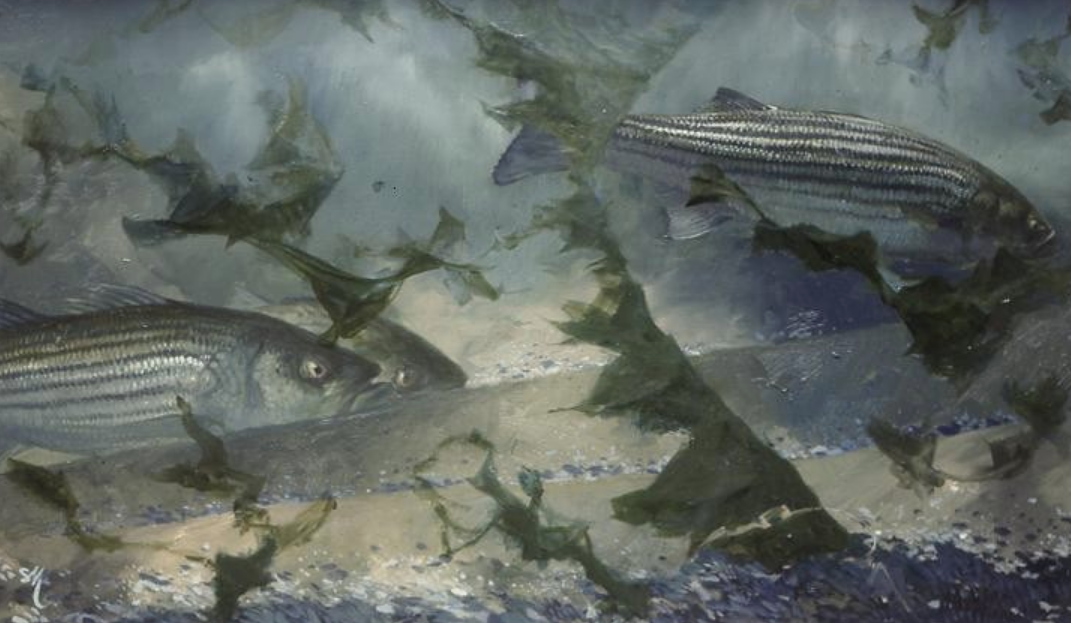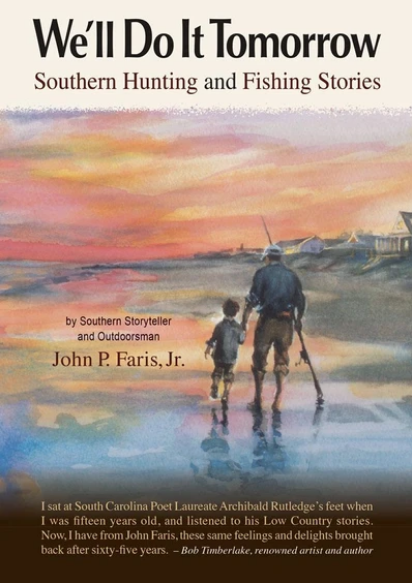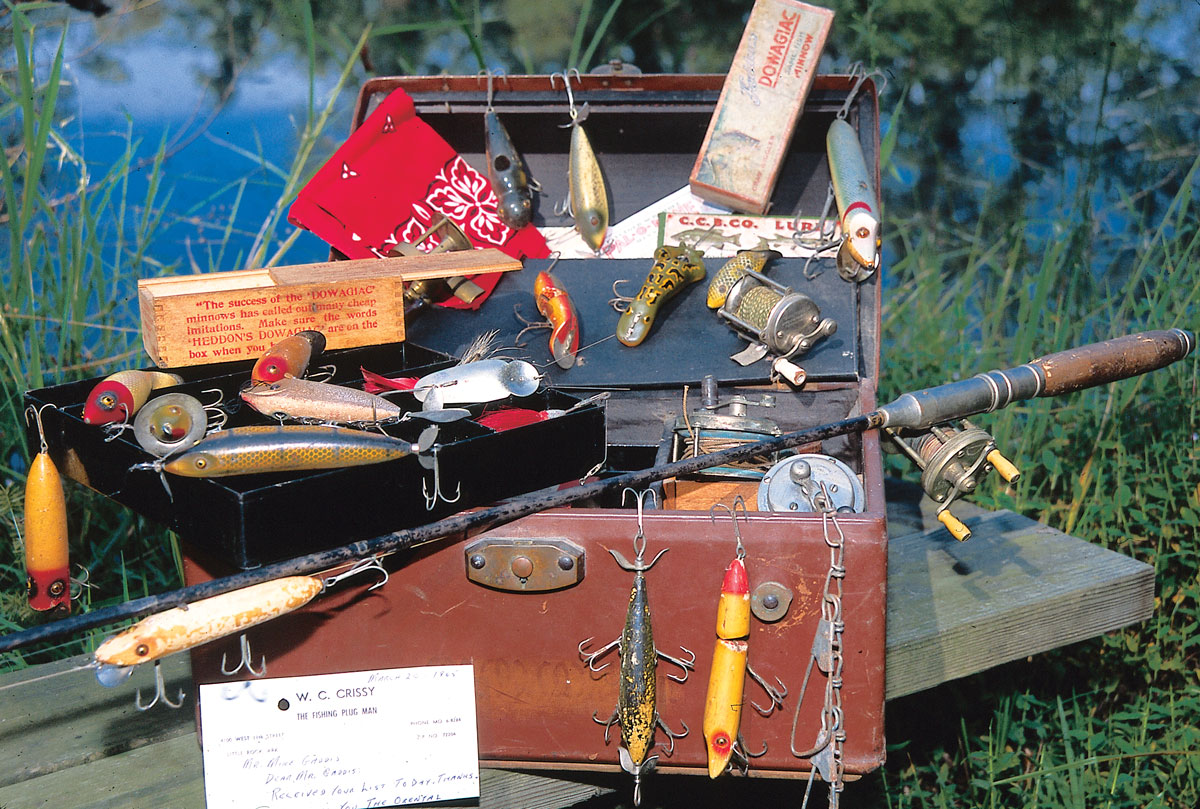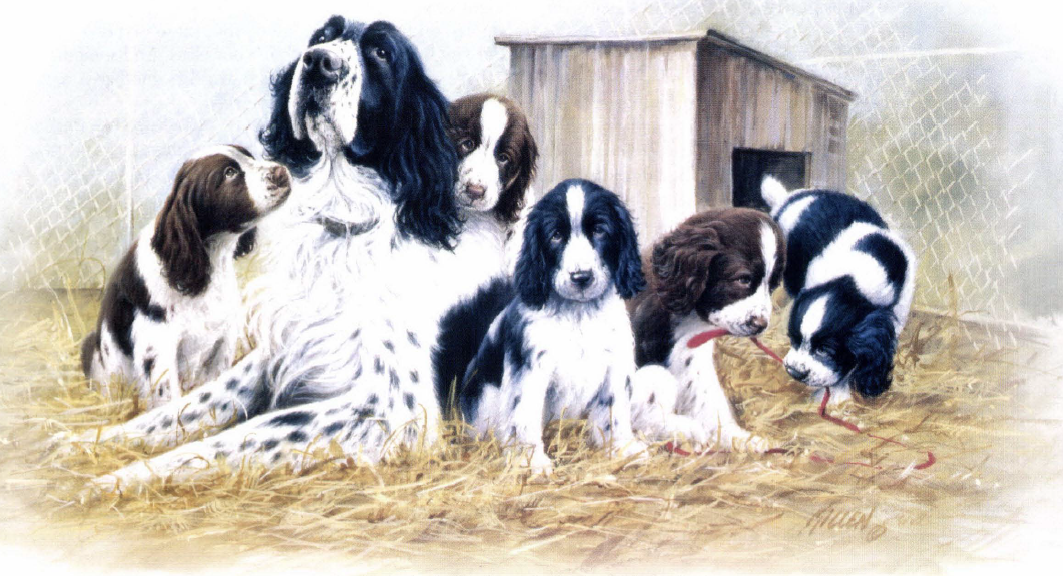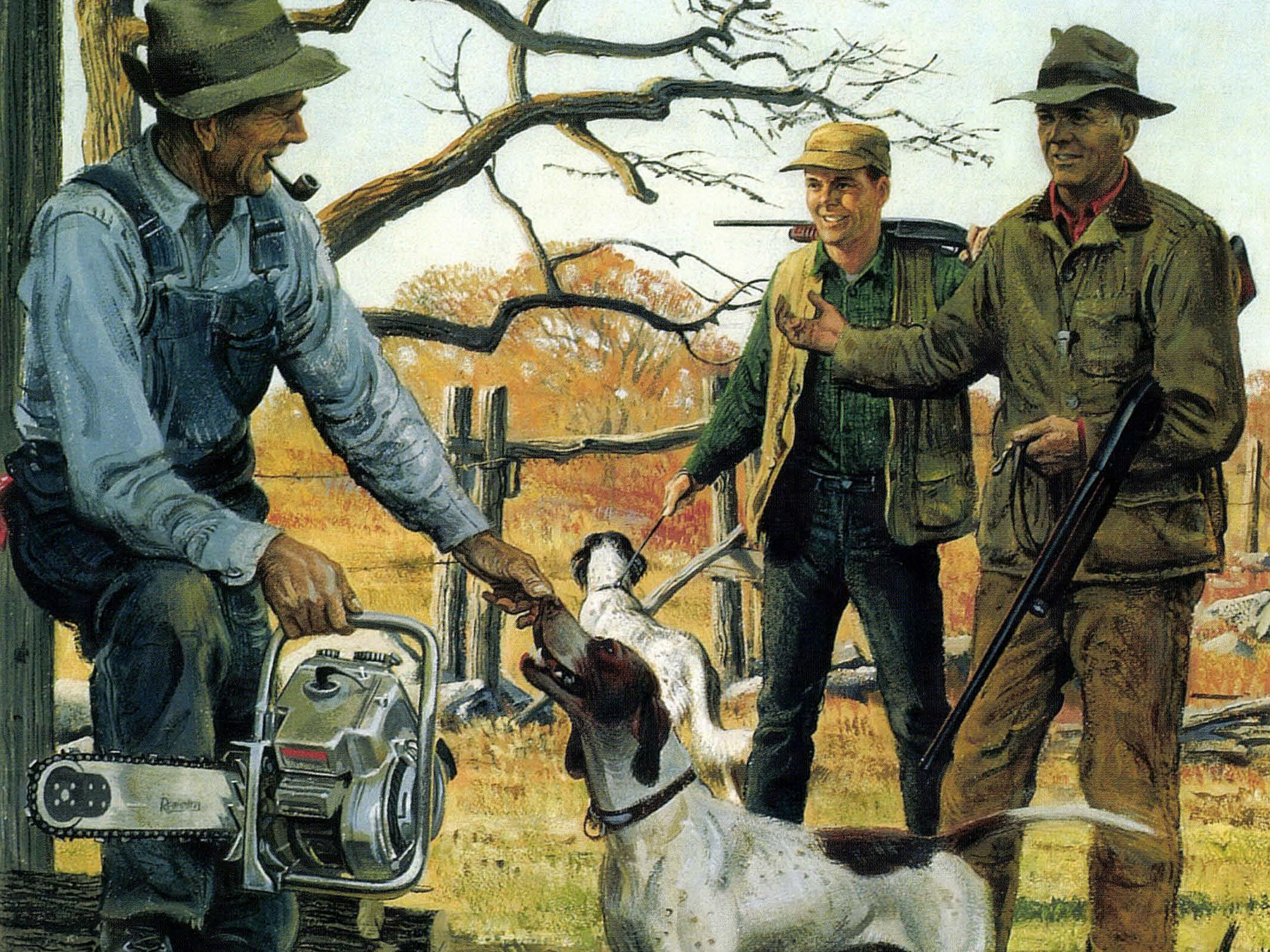Roccus sinuated, swirled and sounded, and all the line so laboriously won was lost before the boat could be brought on a following course.
So the May was gone. The backward spring leaped to keep abreast of the sun’s orbit. Anglers sandpapered rods, wound guides and tips, varnished with their fingers, cut sticks of glass, Burma, Calcutta cane; cleaned reels, tested old lines of nylon and linen and discarded them; applied emery to dulled metal squids; replaced rusted hooks in favorite plugs; built herring cars; wired squid rigs for bottom fishing; cast lead for surf weights; filed gaff hooks; counted eelskin rigs; stood hypnotized before tackle displays, mobbed tackle counters; made phone calls to charter boatmen.
The bass were in!
Gilligan wrote in the New York Herald Tribune that a few were being taken in the New Jersey surf. Ray Camp in the New York Times said they were off Shinnecock Inlet. Trullinger and Hurley and Brawley sent word to the World-Telegram, the Mirror and the Journal that they were knee-deep in them in the Sound. In The Boston Herald Henry Moore wrote that there were bright fish in Buzzards Bay. Earl Banner in The Boston Globe said he had reports they were in the Weweantic River but he wanted to be shown. Dark Montreal in The Boston Advertiser outlined the Cape Cod Canal Derby, and Cliff Davis in the Post wrote of the Martha’s Vineyard striped-bass tournament.
The bass were in and it was time for fishing!
There were at least four good months ahead. The sea, which gave earth life and might someday reclaim it, traced pattern and plot in the shining tides. The net was of greater strength and wider sweep than any Roccus had avoided. Roccus and the shining tides were one. She cleaved upriver.
Bobby Meade steered a 25-degree course through the platinum haze, holding the bow of Carey’s Chicken in line with the first left-hand buoy marking the Hog Island channel approach to Cape Cod Canal. Both engines were rewed to twenty-one hundred and the slipstream was wet, pouring past the spray shield. He and Cal were taking her over from the Vineyard to the base on the river for the first of the fishing.
Cal Knight lay on his back, an ear close to the panel opening of the port engine housing; his eyes were closed under a frown of concentrated listening. If there was a fault in the engine, the skipper’d find it, Bobby thought.
Hooking on as Cal’s mate had taken a deal of doing. Not that Cal, who was his second cousin, didn’t want him, knowing him able, but his ma, and Cal too, had needed convincing that three years of high school were enough for a boy not planning college, and that this particular boy could quit before the end of his third year as well off as ever he’d be.
”Your pa always said you can’t learn navigation without you know your arithmetic,” his ma had warned, using the strongest argument she could muster.
But he had the need to earn some money. “Pa would figure I should. I’ll make more working for Cal than I can off the Vineyard on somebody else’s boat.”
”You’ll spend, boarding places and suchlike.”
“I’ll sleep aboard and mostly eat aboard. And Cal will pay me ten dollars every day he has a charter.”
“On days he doesn’t, you won’t earn.”
“He will most every day ‘cept in foul weather. All the best fishermen want Cal. We’ll maybe go for tuna and make a lot of money.”
“I don’t care; you’re too young.”
“I’m seventeen!” He’d sounded as if 17 were mighty close to man’s expectancy. “Besides, I’m big enough.”
He was too – tall enough, at any rate, tall like his pa had been but skinny as the pole of a boathook. He had a knowledge of boats and fishing gained from his pa, who had always been a good earner, though with him it was easy come, easy go. It was Cal, in the conclusive argument, who’d won his ma over.
“I’ll look after him and Father O’Meara’ll see that he gets to mass. Holds an early mass for the boatmen and anglers.”
“Mind your helm!” Cal said.
Bobby started from daydreaming and noticed he was three points off course. Cal still lay with eyes closed, listening. The boy turned the wheel gently.
“Hey, Cal.”
“Yuh?”
“How’d you know I was off course?”
“Wave slap changed on the bow.”
“How can you hear the slap above the motor?”
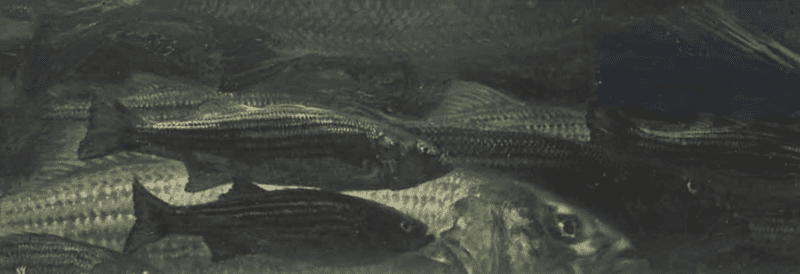
“Pick a fiddle out of an orchestra, can’t you?”
“You find the trouble?”
“Carburetor adjustment. Doesn’t amount to anything.” Cal slammed the panel back into the housing box and secured it and came standing without touching his hands to the deck.
“I’ll take her now. Bad water here for you to learn.” He took the wheel.
“You sore, Cal?”
“Nope.”
“I shouldn’t have let her fall off like that.”
“You shouldn’t have. Nothing happened that time, but next time it could.”
“That’s right. Now you’ve said it all yourself without my having to say it. No next times. We set a course, we hold it. Right?”
“Right, Cal.”
“Fetch one of the glass rods and rig a plug. Get that big hooper-dooper I made. Might’s well wet a line.”
Bobby fetched a rod from the cabin ceiling and snapped the big teak plug to the leader. Cal throttled down to 400, to 300, to 250, and Bobby let the plug go astern, thumbing a free spool.
“Boy, what action!” the boy said.
“Let out a couple hundred feet, get it deep. Any fish around he re, they’ll be deep. Tell you something.”
“Yuh ?”
“Throw your reel in gear and loosen the star drag. Strip your line off against the drag. Know why?”
“Guess so. Fish hits when I’m free spooling, I maybe get a backlash or a burned thumb.”
“And if you don ‘t and you throw into gear with the drag set up, you break off. So you knew half it anyway.” He grinned. “Guess I can’t teach you much, mate.”
Cal swung right rudder to a 40-degree course, leaving Abiel’s close to port for the run along Stony Point Dike toward the canal proper. They bucked an outgoing tide with the rips strongly made. Revved down, they had barely steerage way. There was a little traffic. A tanker was standing down past Mashnee, riding light, and a dragger, loaded to the gunwales, passed them with her diesels pounding, Bostonbound. There were a few small craft distant and one closing rapidly on their starboard bow.
Cal said, “That’s a fast job, Bobby. Coming up.”
The approaching cruiser’s bow was a brown dot in a ten-foot V-fountain of spray. She passed a hundred feet distant at not less than 30 knots, a low, three-quarter-decked mahogany hull built for speed and some weather. The big man at her wheel kept his eyes ahead, but the girl beside him, her hair streaming, waved. Cal waved back and Bobby pumped the rod and cranked the reel to give an imitation of handling a fish. The sucked-down stem of the boat showed the bronze letters, Tiderunner, and, beneath them, Marblehead.
Bobby stripped line, and the action of the plug was in every fiber of the line and rod and in the nerves of his hands. Then he felt shock up his arms to his shoulders.
“Cal!”
When the tide ebbed with the west flow of colder water through the canal, Roccus in mid-channel dropped back with it under the railroad bridge, past State Pier, through the straits between Hog Neck and Hog Island into the warmer waters of Buzzards Bay. She swam onto the shoal at Cedar Island Point and in three fathoms there hunted food, finding little except a few of the first of the humpbacked scup. These, in the adult growth, had dorsal fins too sharp to be relished. Some of the smaller ones she swallowed. She pursued and lost a small school of sand launce. She rooted for them but could not find where they had buried themselves.
With the wash of Tiderunner’s wake over the shoal, she swam into deeper water, not alarmed but wary, and within the cone of vision of her light eye detected an active, elongated shadow, something like a whiting, swimming in jerks as if wounded, and fluttering from one side to the other. She closed on its strangeness and followed leisurely until the object leaped away from her. She accelerated and swam abreast of it, but it jerked away swiftly. She swam beneath it and bunted it gently with her head.
In her years Roccus had encountered many kinds of artificial lures, and a few, when they had proved sufficiently tantalizing in action and the conditions of light or approach were such as to obscure leader and line, she had struck. Decision and action in this case were simultaneous. She swirled and took the hooper-dooper head-on just as it jerked again. Two of the gang of head hooks embedded themselves in her upper lip.
“Cal!”
Cal heeded.
“You hung on bottom, Bobby?”
“On fish!” Bobby grunted. The rod arched and the line hissed against the light drag, and hissed cutting the surface.
“Good boy!” He revved the port motor, turned right rudder to keep the line from the hull. “Take him easy. Bass?”
“Yuh. Big one, Cal.”
“They all feel big first-out in the spring.”
Bobby held the rod tip fairly high and kept the reel cranking, but the line still payed out.
“You best tighten up a little on that drag.”
“That’s what I was going to tell you,” Bobby grunted. ”I’m buttoned down tight already.”
“Oh.” Could be big fish at that, Cal thought, though it was awful early. He gunned the motors and began to follow the fish across channel. Bobby picked up some line. The fish dogged deep and the rod butt, jumping alive, bruised his groin. “Get me a belt, Cal.”
Cal reached into the cabin for a leather bib and buckled it on the boy and helped set the butt in the pocket, feeling as he did so the springy surge of power away out at the end of the line. The fish was big. Twenty minutes passed. The battle had taken them across the channel to the south end of Mashnee, a boulder-strewn bottom.
“That rod’ll stand all you can give it and the line is new. Your fish is well hooked, or you’d have lost him long ago. Better go to work, son.”
The young mate lowered the rod tip, reeling; pumped, lowered reeling; pumped again, repeated.
“Gets in those boulders, he’ll cut off, Bobby.”
“Know it. Moved him some. This can’t be no bass.”
“It’s a bass,” Cal said. “Nothing else acts like that. Give it to him.”
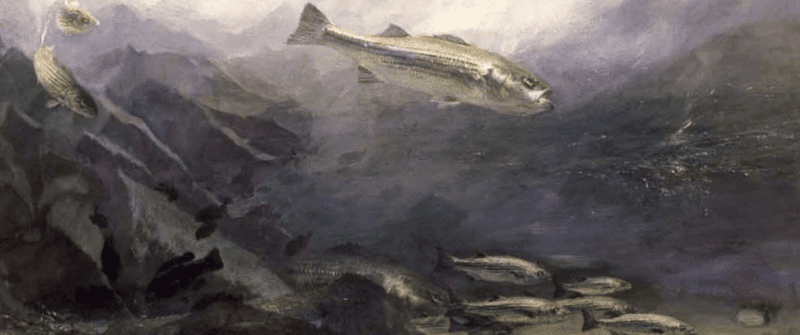
Bobby gained 50 feet, lost it; gained 60, lost 50. Ten minutes later, after a series of short runs, the fish had only a hundred feet of line.
“Coming up!” Bobby yelled in triumph. Off the stern Roccus surfaced in a great shower of foam and Bobby called on the Mother of God to witness the sight. Cal kicked into slow reverse and said quietly, “Don’t give him slack. Ease off a little on your drag and watch out. He just came up to look around; he’s going to move sudden.”
Roccus sinuated, swirled and sounded, and all the line so laboriously won was lost before the boat could be brought on a following course.
“He ain’t even winded,” Cal said.
“Cal.”
“Yuh.”
“You take him.”
“If you don’t want him I’ll cut him off.”
“But you saw him.”
”Yuh, and how!”
“How big, Cal?”
“Oh, maybe thirty, forty pounds.” He knew it was wiser not to say how big.
The fish lunged and the line sang.
“I saw him, too.”
“How big you think?”
“Bigger than any bass I ever saw.”
“That so? Well, watch your rod tip.” No kidding him, Cal thought. He saw as well as I. He knows he’s hung to a record.
The rod was a glass half-circle.
“Not much line left.”
“We’ll run up on him again. Take in steadily, keep the pressure on him.”
They’d worked back to the channel edge, and Cal noticed with apprehension that the mahogany speed cruiser which had passed them outbound was headed in again at high speed, bearing directly across their course. He sounded a sharp warning on his horn and saw the bow wave diminish sharply. They hadn’t seen him before. He gave his attention to the fish.
With the help of the boat, Bobby had the fish within a hundred feet again, and surfacing. Cal kicked into neutral.
”You tired him some; don’t let him rest now.” He went below for the big gaff. When he came topside with it, he saw with consternation that Tiderunner was laying to, not a hundred feet beyond the surfaced, thrashing bass. He cupped his hands and shouted, “Ahoy, Tiderunner! Move off, please! This fish will run again!”
The man and the girl had taken seats on the cabin to watch the fight. The man gave no sign he heard; Cal saw the girl turn to speak to her companion, probably repeating the message. The man pointed at the fish and said something. Cal shouted a warning again but it was ignored.
“He’s going to move again, Cal, I can tell. He’s getting ready! There he goes!”
The surface leaped and boiled. The bass took line once more and the tip of Bobby’s rod was pointed directly at the other boat.
“I can’t turn him, Cal,” he called. “He’ll pass under that lardhead. I’ll swing in an arc around him. Don’t pressure him enough to keep him up.”
He gunned both motors. He saw the man on Tiderunner leap for the wheel and shouted, “Don’t start up! Lay where you are!”
The girl waved, but Tiderunner’s motor came alive with a roar and tile mahogany leaped, crossing Carey’s Chicken’s bow.
“He’s going right over my line!” Bobby shouted.
Cal kicked into neutral, slammed into reverse. Tiderunner jumped clear, the man at her wheel shaking a fist.
“He cut me off!” Bobby’s cry was anguish. Life had gone from the rod, line drooped from its tip. The mahogany cruiser, her damage done, lay to, motors idling again, and the boy called to her skipper in Cal’s own phrase, ”You big lardhead!”
Cal said, “Easy. I can do better than that. Reel in your line.” He ran over alongside Tiderunner, and the man emerged from the wheelhouse. He was younger than Cal had thought, and the girl was better looking. But even so…
He said, deliberately, easily, ”You’re a no-good son-of-a-bitch. At first I wasn’t going to say it in the presence of the lady, but then I figured anyone who’d be palling around with you wouldn’t mind an understatement like that…you don’t, do you?” he asked, his eyes on the girl.
Her companion had a bull of a voice. ”You wouldn’t say that ashore, you clam mucker! You haven’t got the guts!”
”I’d say it ashore, afloat or flying. And with ditto marks. I base on the river at Farrell’s Wharf and I’ll be there in less than an hour. I’ll be glad to say it then and there or any time later, anywhere.”
He moved out and headed upchannel. Tiderunner passed him, heading in.
“Maybe he’ll be waiting, Cal,” Bobby said.
“Good, I need it.”
“Looks pretty good. In good shape.”
“I need a licking. Do me good. Shouldn’t have said it – not in front of her.”
“She didn’t look the kind would be with him.”
“Doesn’t make any difference. Shouldn’t have said it. Don’t you ever.”
“I won’t…Cal?”
“Yuh?”
“How big was that bass?”
“Really want to know? Make you feel bad.”
“I want to know.”
“Not less than one hundred pounds. Not less than five and a half feet long. ow you can cry in your pillow tonight.”
“Maybe I’ll get a bigger one.”
Cal grinned. “I got me a good mate,” he said. He put an arm around the boy’s shoulder. “Listen, kid. No sense to tell a man not to feel bad when he loses a record fish. But if you’d caught it, you wouldn’t have had any fun bass fishing the rest of your life. Imagine that!”
They both laughed.
Tiderunner wasn’t in sight when they tied up at Farrell’s Wharf.
“Wash down and make up the bunks,” Cal said. “I’m going up to see Tom Salter and tell him about that fish, and I’m going to call New Haven and tell Dan Merriman, who’s doing striped bass research at Yale. No sense telling anyone else; they’ll just figure we’re dreaming. If I’m not back in fifteen minutes, get some chow cooking; anything suits me.”
“Okay, Skipper.” Bobby grinned.
Cal found Tom Salter at his boat station and told him of the fish. Tom told of the fish he and Father O’Meara had seen.
“Could be the same,” Tom said.
“Fish we saw wouldn’t stay in the river long.”
“How is the Father?”
“No younger. But well enough. And asking for you recently.”
“I’ll drop by the rectory and say hello. Someone I want him to keep an eye on.”
“You won’t find him this afternoon. Manuel Riba is giving him some worry and he went up to Manuel’s place. That damnfool chief down at the Coast Guard Station, Maddox–you know him–he’s got Father in a frame of mind to believe that all his works are in vain if he can’t save Manuel from the devil.”
“By the way, you know a sport cruiser, Tiderunner?” Cal asked.
“I’ve seen it lately. Seems to belong up the river. Saw it moored off a new house up there where some professor and his daughter come to live. Why?”
“Quite a craft.”
The soft, warm light was going. Cal paid his respects to Mrs. Salter and decided to go back to the boat without telephoning Merriman. He saw the riding and cabin lights were already turned on; Bobby would have something cooking. Maybe later they’d go uptown to the movies. Right now he was hungry.
He called when he walked out on the apron of the wharf, but Bobby didn’t answer. The new tide hadn’t raised Carey’s Chicken much. He swung down four rungs of the ladder and jumped aboard. Bobby lay sprawled on the deck between the engine housings, his head on his heads, sobbing. Cal knelt swiftly.
“Hey, kid, what gives?”
The boy half turned his head. It was a bloody mess, mouth and cheeks cut, both eyes swollen, nose torn at one nostril.
“What happened?”
“That guy came looking for you. Said you’d run out on him. Called you a yellow bastard. I told him everything you’d said went for me, too. That’s all. Except he’s awful fast and awful good.”
Cal got him sitting up and washed out the cuts. The nose wasn’t broken. Nor the spirit.
“I wasn’t crying because I took a licking.”
“I know.”
“It was because I’d lost the fish, Cal, you’d have had him if you’d been handling him. Would have meant a lot for the reputation of the boat.”
So that was it.
“Listen, Bobby. I couldn’t have done any better than you. Nobody could. You made no mistakes. That rod was too light to kill that fish in anything under an hour. Hadn’t have been for that son-of-a-bitch, you’d have had him.”
“Maybe.”
“Come on, let’s chow. You want to go to the movies later?”
“Sure, anything you say.”
“I say the movies for you. I got an errand to do.”

